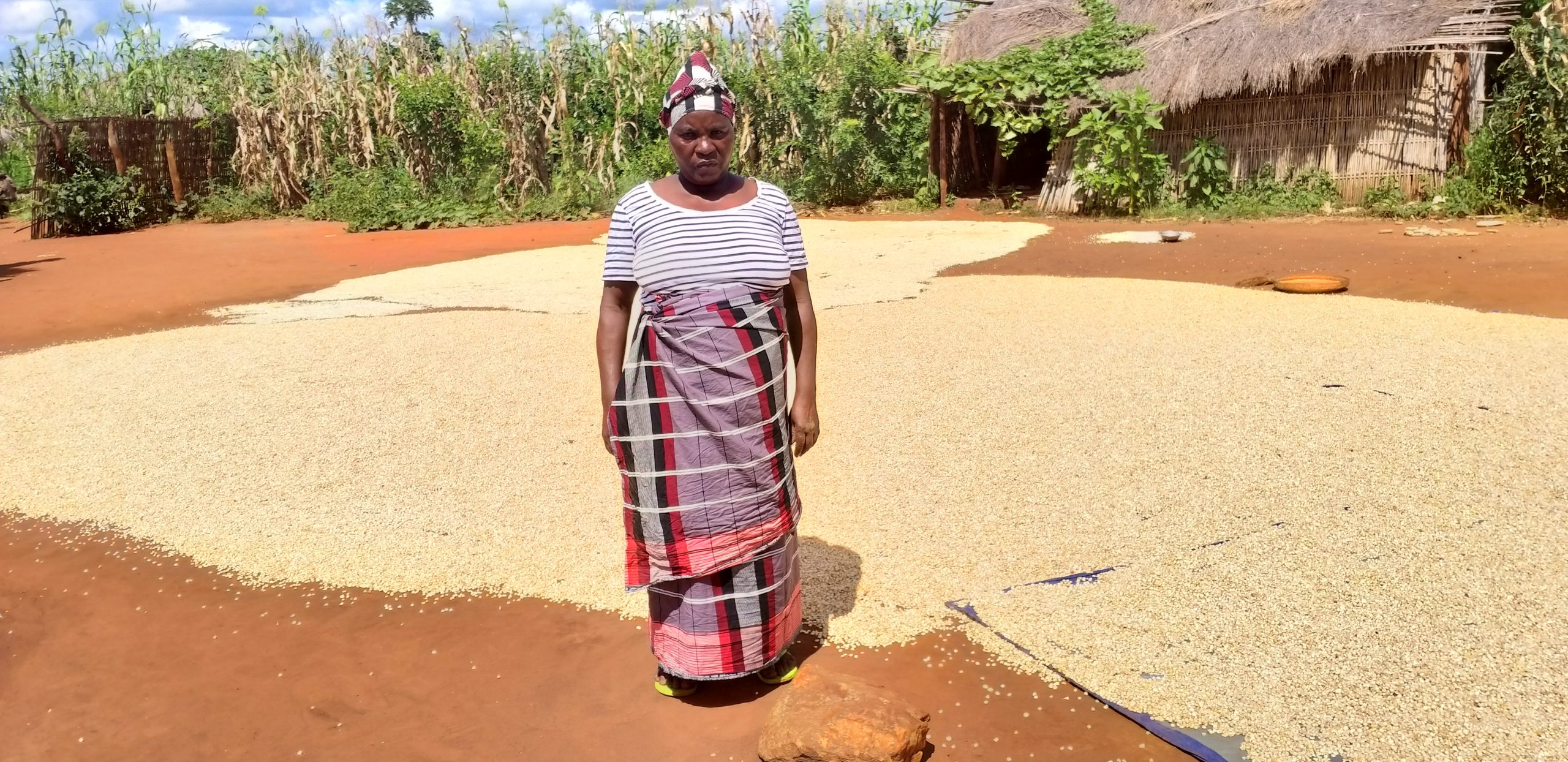Climate Change, Insecurity, and COVID-19: How Farmers in Northern Mozambique are Grappling with Crises on Multiple Fronts
In northern Mozambique, climate change, regional insecurity, and COVID-19 have combined to create immense challenges for farmers like Jacinta Fernando. A TechnoServe program is teaching these farmers how to grow soybean for the first time — a profitable cash crop that can help them improve their financial security and food security during times of crisis.
For farmers in the Cabo Delgado province of northern Mozambique, uncertainty is the only certainty. Since 2017, armed and violent insurgents have carried out a series of deadly attacks, killing hundreds of civilians and displacing thousands of others.
In 2019, Tropical Cyclone Kenneth made landfall near the city of Pemba, flooding thousands of homes, destroying farmland, and leading to a humanitarian crisis. Then, early last year, the first cases of COVID-19 were reported in the province, adding additional challenges in an already volatile environment.
An Uncertain Future for Farmers in Northern Mozambique
For farmers like 55-year-old Jacinta Fernando, just making ends meet under these circumstances was difficult. For many years, Jacinta relied solely on the money from her corn, sorghum, sesame, and banana harvests to survive. But each season, she ran into the same problems, leaving her with less income and more uncertainty about the future of her farm and her family.
“Before, I had little access to machinery for tilling my fields,” she recalls. “I also did not have technical assistance and had difficulty accessing farm supplies like certified or improved seeds.”
Then, last year, a TechnoServe trainer introduced her to the benefits of soybean cultivation. Soybean is a cash crop with great potential to improve the livelihoods of smallholder farmers in Cabo Delgado. It is in high demand for use in two main by-products: soy cake and soy oil.
These, respectively, account for about two-thirds and one-third of the crop’s economic value in Mozambique. Soy cake is used as feed in the country’s booming poultry industry, while soy oil is largely for export with some domestic utilization.
Farmers in Northern Mozambique Learn to Grow Soybeans
In late 2019, TechnoServe received funding from the Embassy of the Kingdom of the Netherlands, through a consortium led by SNV, to expand its work in soybean to the Cabo Delgado region through a new program called ProSoja (“soja” means soybean in Portuguese).
After hearing about the potential benefits of soybean, Jacinta decided to plant two hectares for the first time. With support from TechnoServe trainers, she learned how to manage every aspect of soybean cultivation, including:
- Weeding
- Fertilizing
- Marketing
- Commercialization
For my family and me, I hoped to achieve higher production and productivity [on the farm]. I also wanted to increase the volume of my business and to improve the family income.”
— Jacinta Fernando
Climate-Related Challenges on the Farm
But soybean production relies on timely rainfall, and this year, the rain stopped falling. Soybeans require a significant and constant amount of rain to germinate, and it is particularly crucial during the first few days after planting. This season, certain areas started raining, creating sufficient humidity to plant, but the rain stopped one to two weeks later. Without rain, the plants died, and farmers lost all of the fields they had already planted, forcing them to start over.
“This season has been very complicated due to lack of rain,” Jacinta says. As part of its environmental sustainability work, TechnoServe is helping farmers identify soybean varieties that are more resistant to water stress and can respond to other changes to agro-climatic conditions brought about by climate change.
“When the training started, I felt happy, curious, and confident because I felt directly involved in the ProSoja program. My yields were reasonable despite the lack of rain in the 2019 to 2020 campaign, accompanied by the pandemic of COVID-19.”
— Jacinta Fernando
Despite the setback during the planting period, farmers in the program were able to replant their soybean. However, they ran into additional problems when they went to sell their crops in June of last year.

COVID-19 and Regional Insecurity Create More Challenges for Farmers in Northern Mozambique
Most of the potential buyers had decreased their operations because of the COVID-19 outbreak and subsequent lockdown, as well as the rising insecurity in the region. Many companies were not buying raw materials but instead using stock they already had in their warehouses. Additionally, many businesses had no interest in building operations in a region with terrorism and the threat of violence.
These obstacles made it challenging for farmers to find buyers for the many tons of soybean they had produced. TechnoServe helped farmers in the program identify potential buyers and assuaged the fears of buyers who wanted to purchase soybeans but were concerned about the security threat.
Despite the many challenges farmers faced last year, they were still able to sell their soybean harvest for good prices. In total, farmers in the program earned $148,569 from their first soybean harvest, including the $1,042 Jacinta earned.
For Jacinta, harvesting soybean for the first time has meant financial security and food security in an otherwise uncertain environment. With the extra money she earned, she invested in her farm and her family. She recently purchased a motorcycle and is expanding the area she has under cultivation. Although her two sons are now adults, she also wants to support them however she can.
“I have been able to give a part of my income to my son to improve his business selling Ulva [sea lettuce] and dried fish,” she shares. “I believe that my life in agriculture is gradually improving by working with the ProSoja team.”




